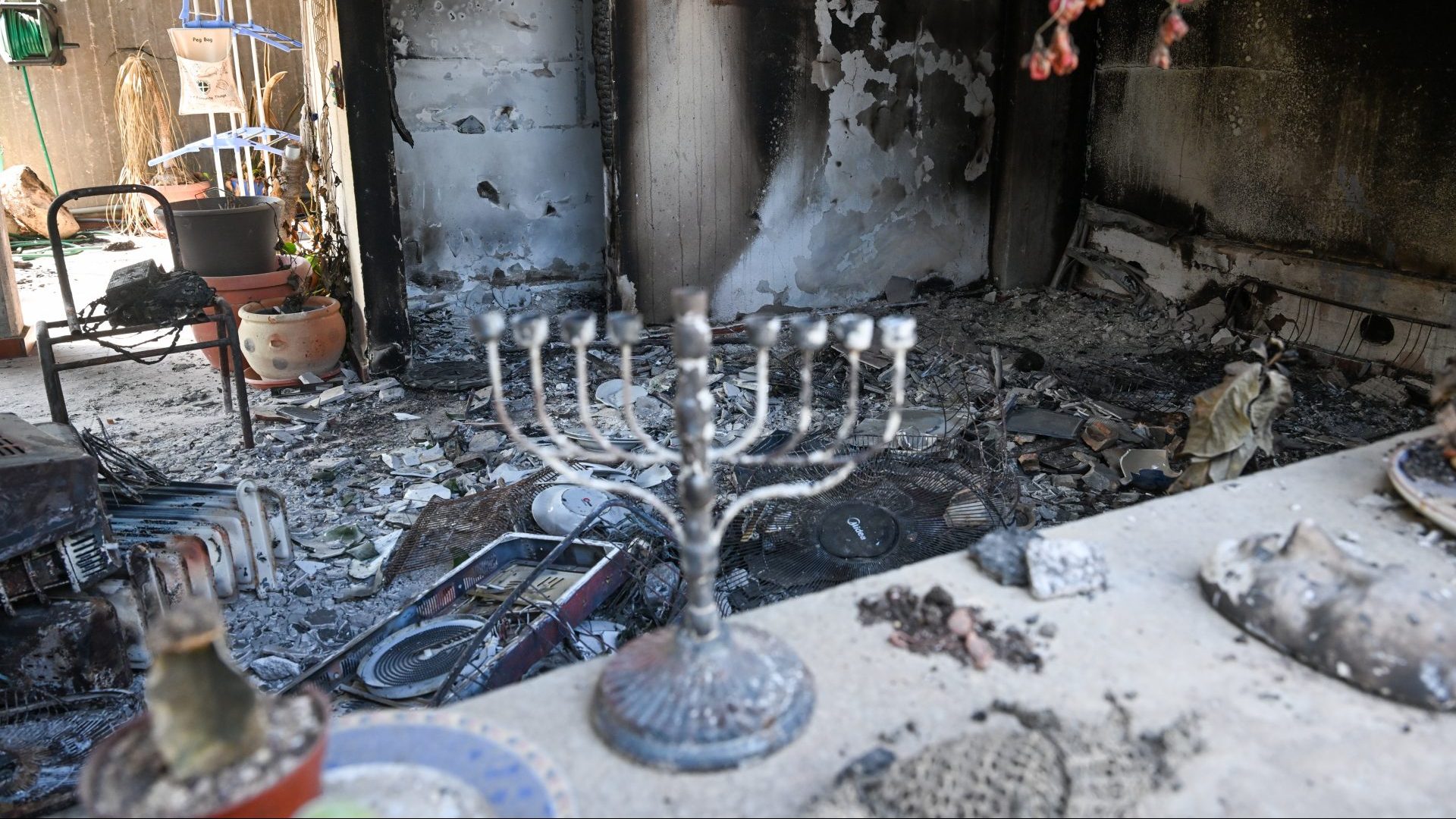Only an irredeemable psychopath could actively long for the conflict in the Middle East to continue a second longer than it has to. Even allowing for the unreliability of Hamas statistics, it is clear that many thousands of civilians have already died in Gaza, including a grievously high number of children. The progress that has been made towards daily “humanitarian pauses” is a scintilla of good news amid the carnage.
Yet those who truly wish the conflict to end, or even to abate, need to broaden their horizons and look beyond Israel’s military actions in the enclave. They also need to look beyond the provocations of the sacked home secretary, Suella Braverman, Tommy Robinson and the tawdry culture war that the real war has ignited.
The world is watching Gaza, but it is not looking at the whole board of geopolitics in the Middle East. It is not paying sufficient attention to Iran’s sponsorship of Hamas, an organisation that is best understood as the regional affiliate of an international Islamist franchise. It is neglecting the determination of that franchise to isolate and ultimately destroy Israel.
To a dangerous extent, the field of the global webcam has narrowed. As a consequence, much of the reporting conveys the impression that the Israelis have inexplicably and unforgivably derailed a (non-existent) peace process that was going swimmingly.
Every time I see a talking head impatiently demand “a return to the peace process”, I wonder if they are afflicted by amnesia, or ignorance, or both. There have been no such meaningful talks since the complete failure in 2014 of Barack Obama and his secretary of state, John Kerry.
As for the much-discussed “two-state solution”: that has not been a serious prospect since 2001, when Yasser Arafat rejected the deal with Ehud Barak brokered by Bill Clinton. Worst of all is the relegation of October 7 to the very margins of the dominant narrative. Of course, there is always a sentence or two of moral throat-clearing, along the lines of: “We all deplore what happened on October 7 and grieve with Israeli families [pause to indicate sincerity]. However….”
I find it extraordinary that, at the time of writing, the UN has not only failed to condemn the Hamas atrocities but has actively rejected amendments doing so. In such omissions, one observes longstanding hostility to Israel shading into outright antisemitism.
Here, one stares into an ugly psychological stew. In Terror and Liberalism (2003), the American writer Paul Berman identifies a strain of progressive ideology in the west that invariably blames the victims of Islamist atrocities for the horrors that befall them: “Palestinian terror, in this view, was the measure of Israeli guilt. The more grotesque the terror, the deeper the guilt.”
There is, too, a remarkable and well-established history of what one might call “strategic incredulity”. In the 1920s and 1930s, there was no shortage of western fellow travellers willing to dismiss reports of Stalin’s purges, slave camps and genocidal Holodomor in Ukraine as the propaganda of the bourgeoisie. Ditto those on the left who simply denied that the Serbs had killed more than 8,000 Bosniak Muslim men and boys at Srebrenica in July 1995.
Most powerful of all, however, is the human incapacity to confront fully the very worst things that people can inflict upon each other. The undisputed laureate of this syndrome is the acclaimed American psychiatrist Robert Jay Lifton, who is now 97, and has written powerfully about Hiroshima, the Nazi doctors, My Lai, and the psychology of totalitarianism.
Among Lifton’s most compelling ideas is that people often fall prey to what he calls “psychic numbing”: the activation of a tripwire that prevents empathy or even belief. When an act of brutality or savagery exceeds what the imagination can absorb and the mind can tolerate, our empirical powers malfunction, and we struggle to assimilate the truth.
Jews know all about this. When the heroic Polish resistance fighter, Jan Karski, first delivered detailed accounts of the Holocaust to western leaders – collected in Story of a Secret State: My Report to the World (1944) – he made little headway, even in a meeting with Franklin D Roosevelt in 1943. “I know that many people will not believe me, will not be able to believe me,” Karski wrote. “But I saw it”. He was right on all counts.
Today, in the wake of another attempt to kill as many Jews as possible, as brutally as possible, we are at risk of making a comparable mistake. What is happening in Gaza matches a paradigm of warfare that we have seen often in recent decades: aerial bombardment in the Balkans, in Afghanistan, in Iraq, in Libya and Syria. Our minds are fitted with the cognitive software to confront it.
Not so what happened on October 7. It baffles the liberal western mind that a supposedly “anti-colonial” force would behave like this. It is hard for us to believe – truly believe – that Hamas has deliberately embedded its military infrastructure in a 300-mile tunnel system below health facilities, schools and other public places.
Likewise, it is beyond many western progressives to grasp (and, therefore, easier for them not to think about) the determination of Hamas to keep going until they have wiped Israel off the map. As Ghazi Hamad, a member of the terrorist group’s leadership, said on Lebanese television on October 24, the initial slaughter was “just the first time and there will be a second, a third, a fourth… Israel is a country that has no place on our land”.
This is not an organisation yearning for a ceasefire, much less for urbane talks in Geneva or Dayton or Oslo about a “two-state solution”. Hamas does not want a two-state solution. It wants an Islamic Caliphate – whether or not we believe them when they say as much.
TS Eliot famously wrote that “humankind cannot bear too much reality”. But there are times when we must transcend this limitation. The full hellscape of this conflict may not suit conventional liberal preconceptions.
But so what? We have no right to avert our gaze.




